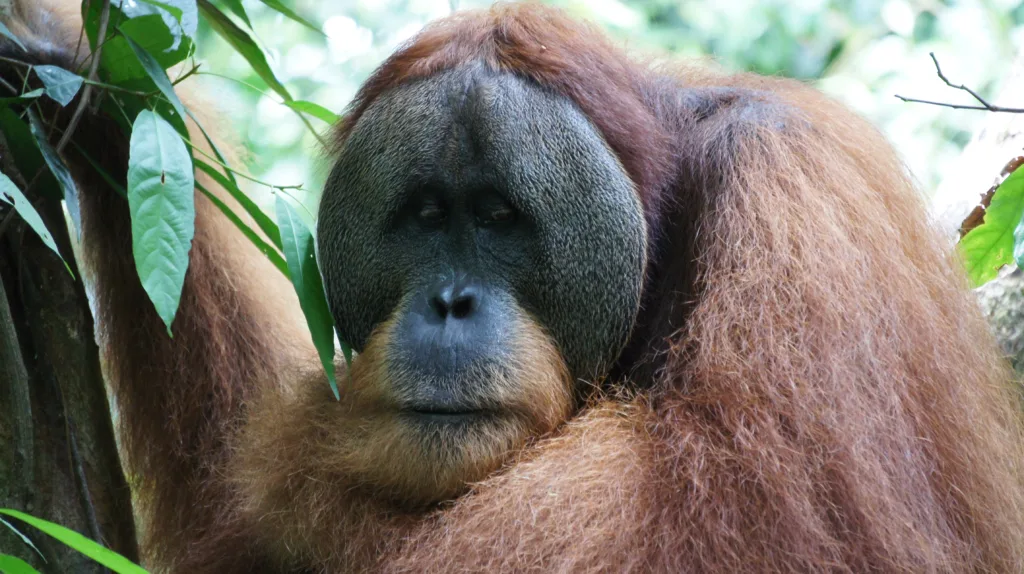Sumatra Nature Quest
Discover North Sumatra
Where Gunung Leuser National Park immerses you in biodiversity, Batak culture unveils its traditions, majestic volcanoes shape the landscape, and Lake Toba enchants with its beauty.
Batak Culture
Batak people host various community rituals and events, preserving Batak heritage and identity in North Sumatra.
They appreciate finely woven textiles called “ulos.” These textiles are woven by Batak women and used in ceremonies, gifts and social exchanges.
Ulos textiles hold significant clan and status symbolism, and are believed to provide protection and blessings.
Music and dance, such as the lively “gondang” music and “tari tortor” dance, are integral to celebrations.
Batak cuisine is known for bold flavors, with dishes like “saksang” and “na tinombur” showcasing their culinary heritage.

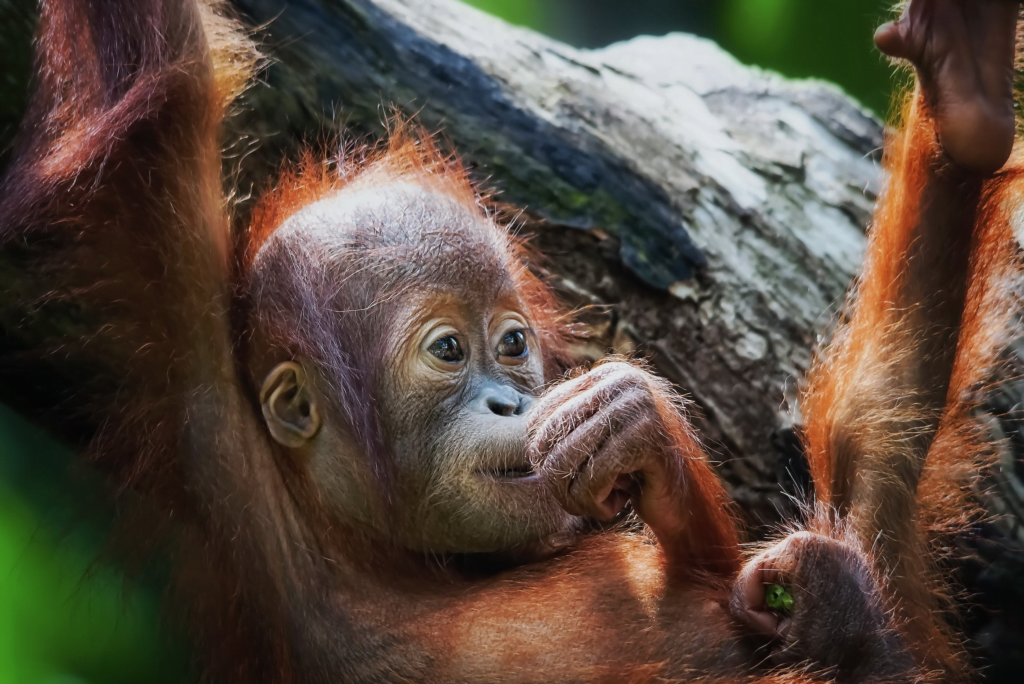
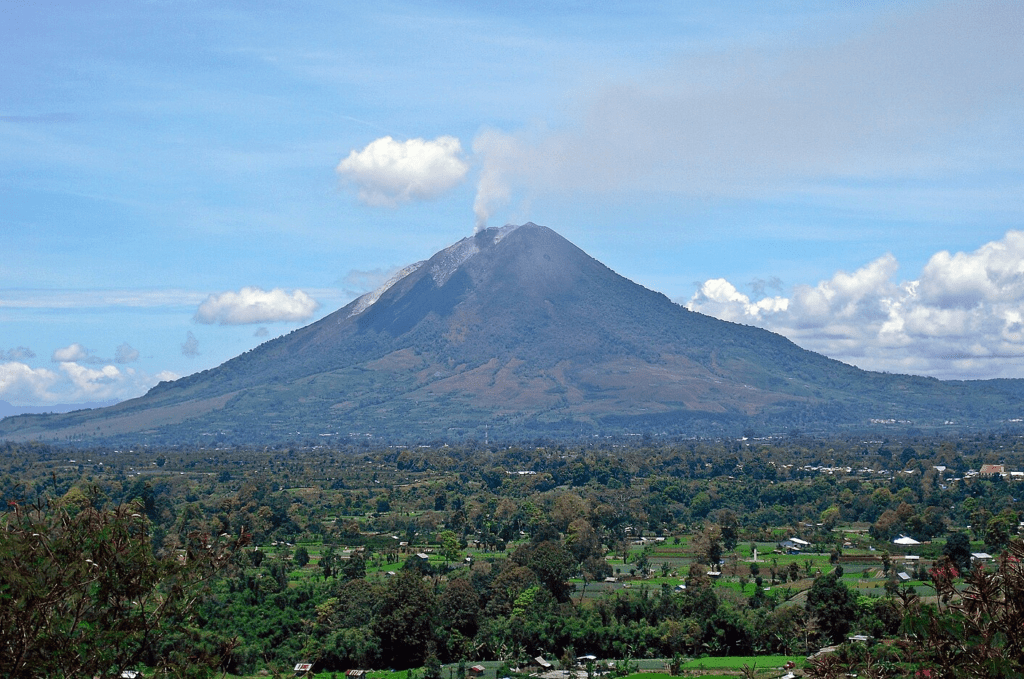

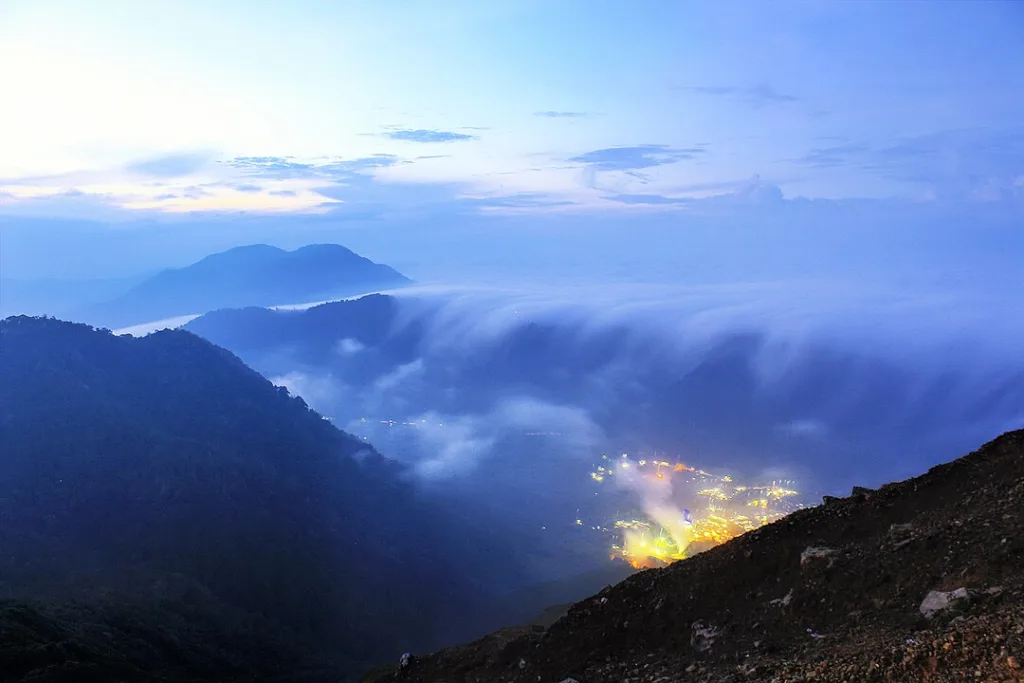
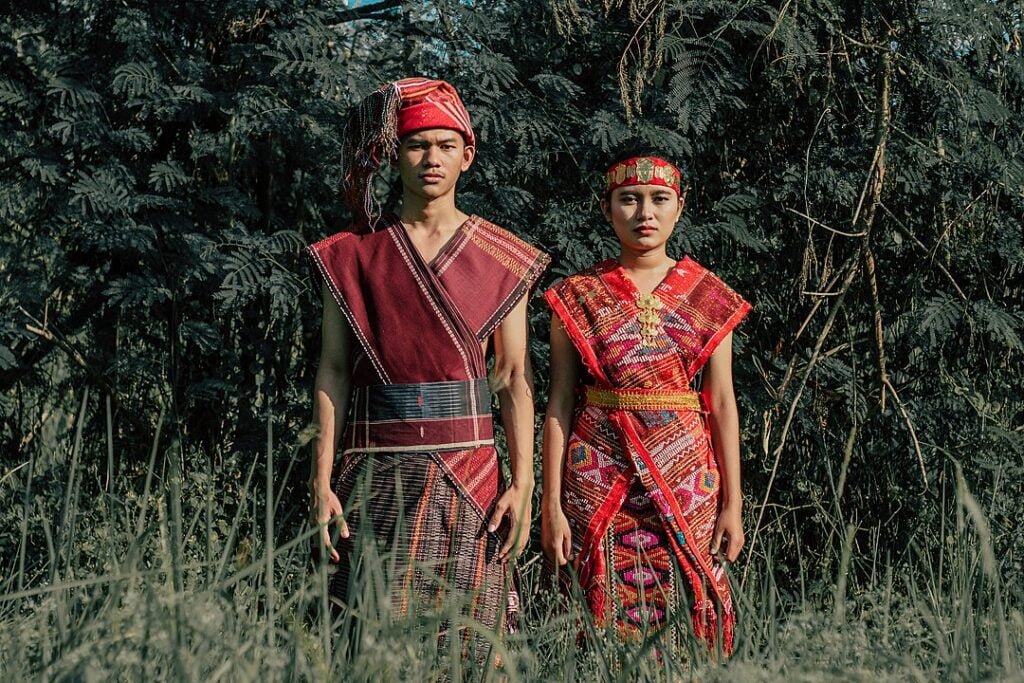
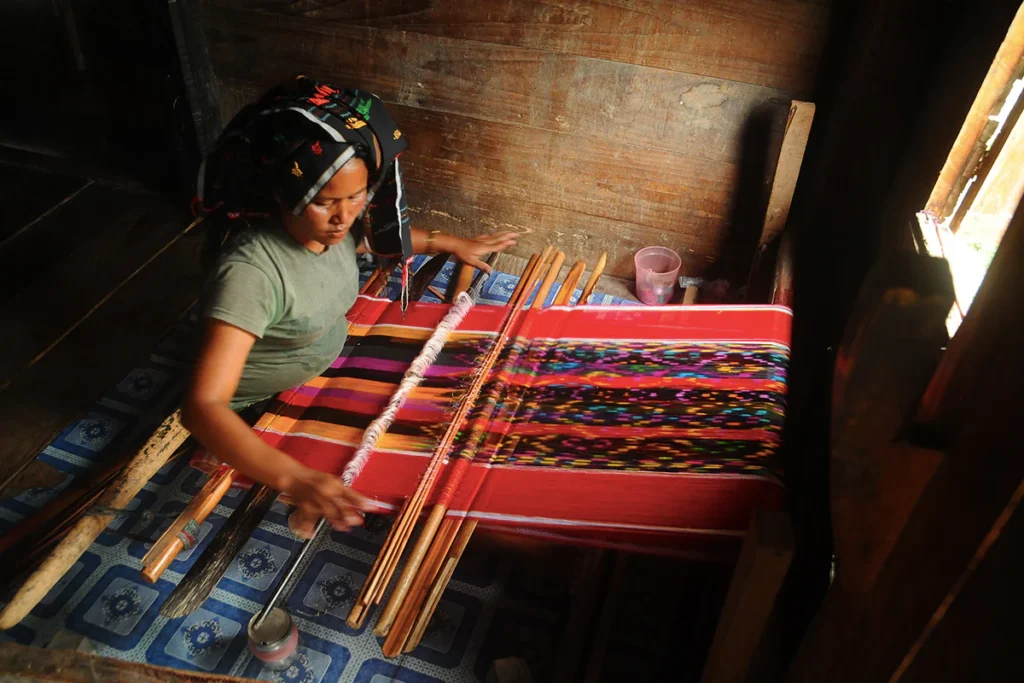
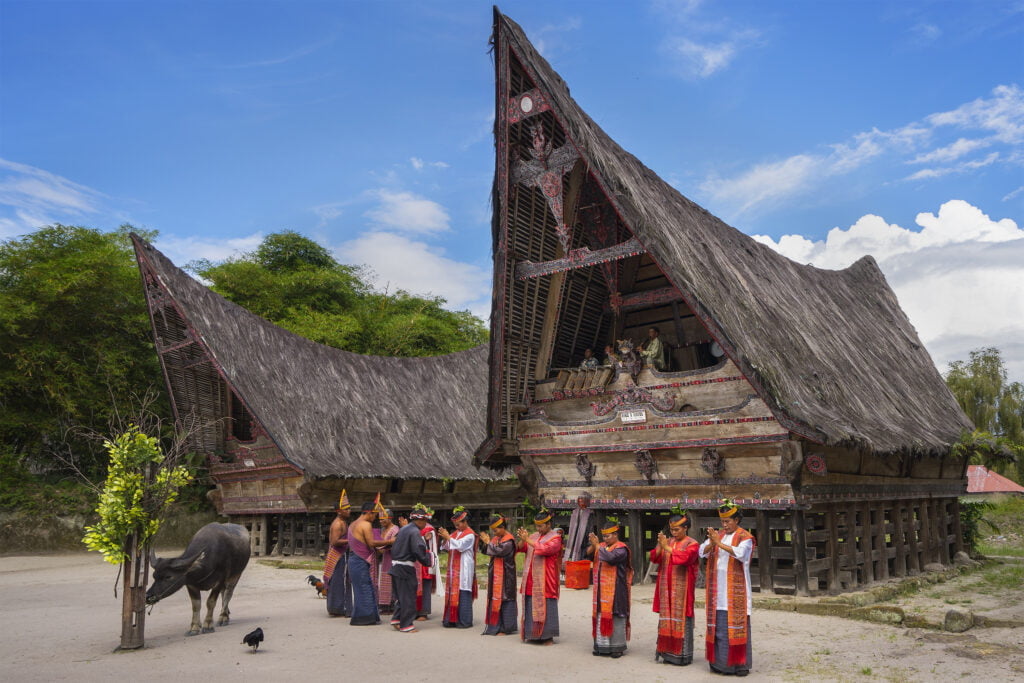
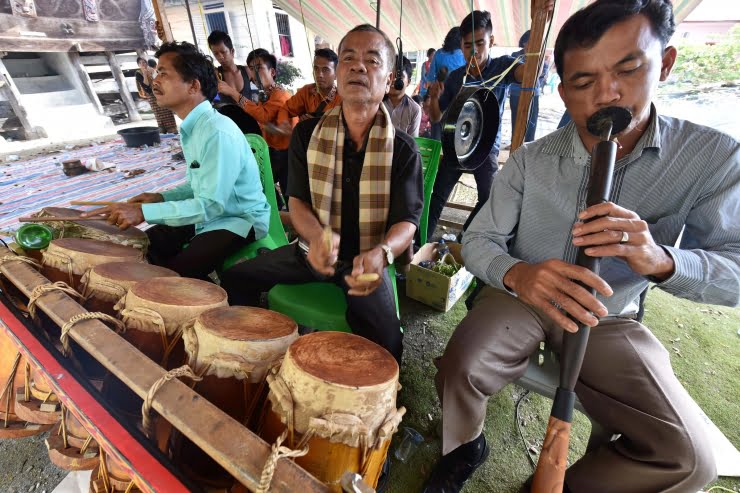
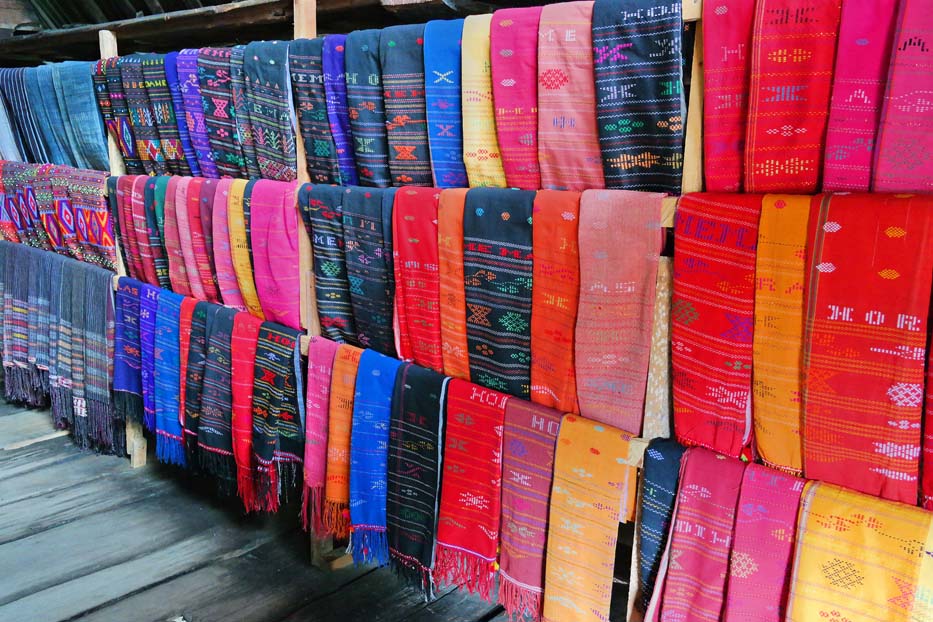
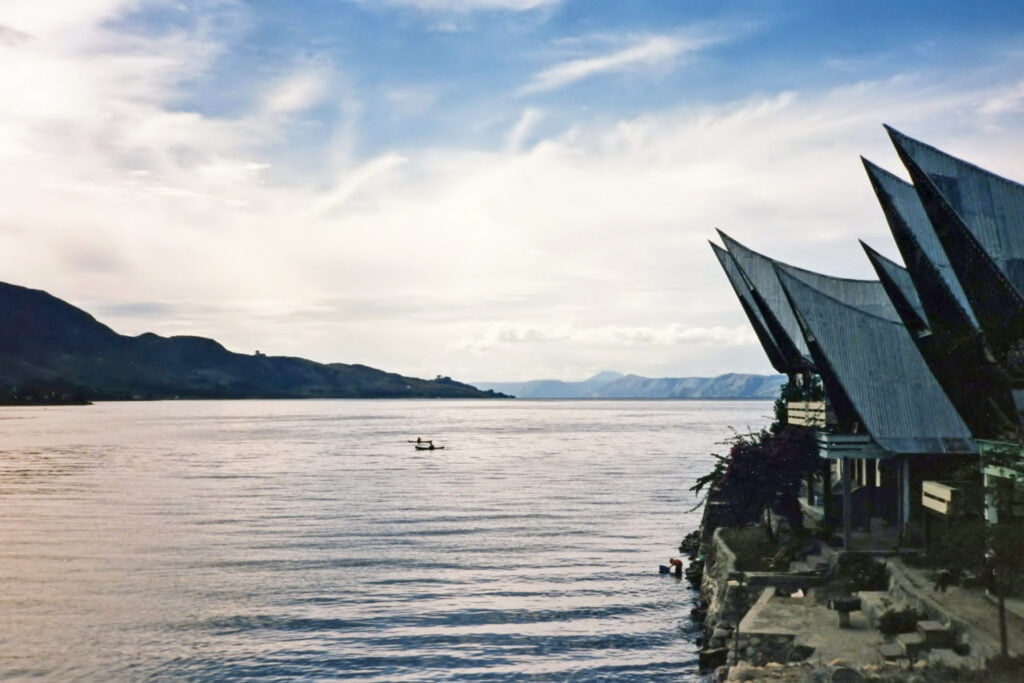
Batak People
The Batak people, indigenous to North Sumatra, are known for their diverse subgroups, each with unique customs and traditions. Their society is organized around clans and extended families, with a strong emphasis on kinship and Adat, their customary law, governs various aspects of life.
Traditional Batak houses, known as “rumah adat,” are architectural marvels marked by intricate carvings and unique roof designs. These houses serve as family homes and cultural hubs, reflecting clan identity through their distinctive patterns.
The traditional Batak religion centered on animism, ancestor worship, and rituals involving spirits and magic. However, the widespread conversion to Christianity, has significantly altered their religious beliefs and practices.
Summary
North Sumatra Tour
- Group: The tour is crafted for groups of 1 to 8 people
- Level of Challenge: 2 / 5 offering a moderate yet enjoyable experience
- Level of Comfort: 4 / 5 ensuring a comfortable experience throughout the journey.
- Duration: An immersive 6 to 8-day adventure (or more)
- Price: For pricing details, kindly contact us here
Key Points of the Trip
Embark on an 6 to 8-day adventure
- Explore Mount Leuser National Park to encounter endangered orangutans and capture photographs of unique species.
- Visit the Elephants of Tangkahan Sanctuary and embark on a side by side trekking with them.
- Discover Lake Toba, the largest volcanic lake in the world, and the island of Samosir, along with its inhabitants, the Batak people.
- Immerse yourself in the rich culture and traditions of the Batak people as you share with them, experiencing a piece of their life and visiting sites, markets or museums, as well as engaging in other activities.
Your Tour, Your Way
The journey can be customized to suit your preferences.
The example provided above is optimized for a 6 to 8-day trip, crafted based on the most frequently chosen itinerary among our clients.
Therefore, the price and duration of the trip can be adjusted based on whether you wish to add or modify destinations already included in the itinerary.
Waterfalls, volcano trekking, tubing, Berastagi market, etc…
Feel free to reach out to us to discuss your specific preferences or to book your trip.
Sumatra Nature Quest
Inclusions and Exclusions
In every journey, some aspects are covered, while others are at your expense.
We also extend our commitment to you throughout your trip.
Included in the Circuit
- English speaking guide
(or French & Spanish speaking guides,
if available at the time of your trip) - All journeys and transfers feature a
private vehicle with AC, and driver (car, minibus) throughout the entire trip. - Accommodation and breakfast during your stay in indifferent and
Samosir island, Lac Toba. - Food and drinks included for your orangutan trek
- Entrance fees to museums and sites included.
Not Included in the Circuit
- Local and international flights
- Additional food and drinks beyond the included items
- Personal expenses, medications,
souvenirs, etc… - Insurance :
We strongly advise securing travel insurance at the time of booking and bringing all essential documents.∗ Additionally, please research and
consider necessary vaccinations
before your trip to Indonesia.
Our Commitment
- We are reachable by Whatsapp 24/7
during your trip. - Last-minute bookings are welcomed
- At Sumatra Nature Quest, we prioritize
respecting and preserving local culture
and the environment. - We are providing clear and honest information
to travelers about costs, itineraries, and policies before and during the trip.
Sumatra Nature Quest
Before you go
It’s crucial to remember that orangutans are a protected species.
If you’re contemplating a visit to observe them in their natural habitat, here are some important guidelines to keep in mind…
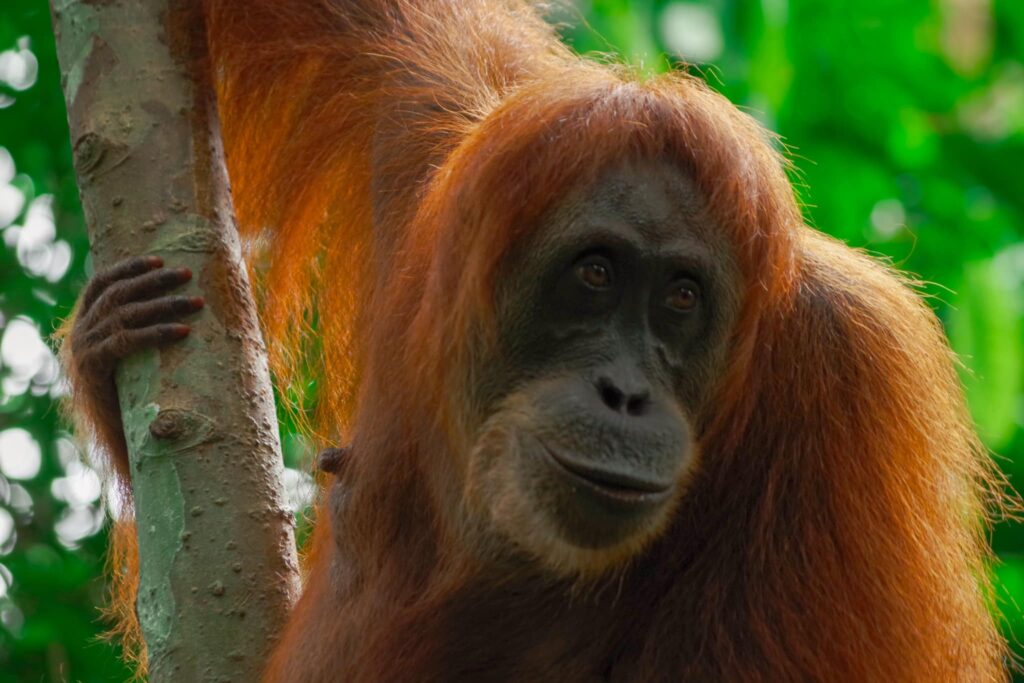
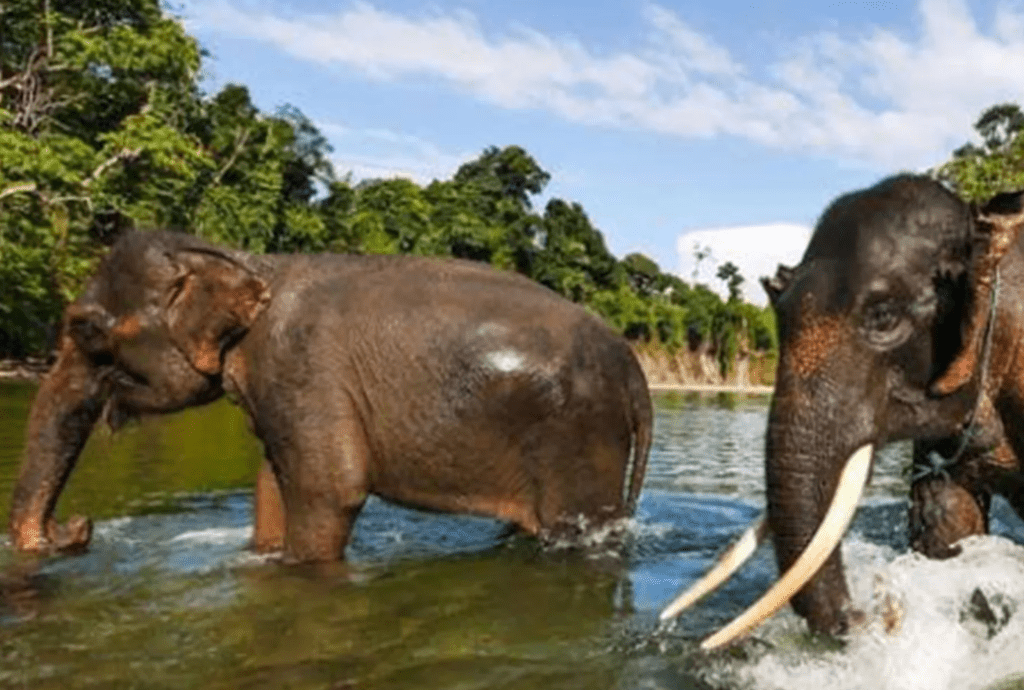
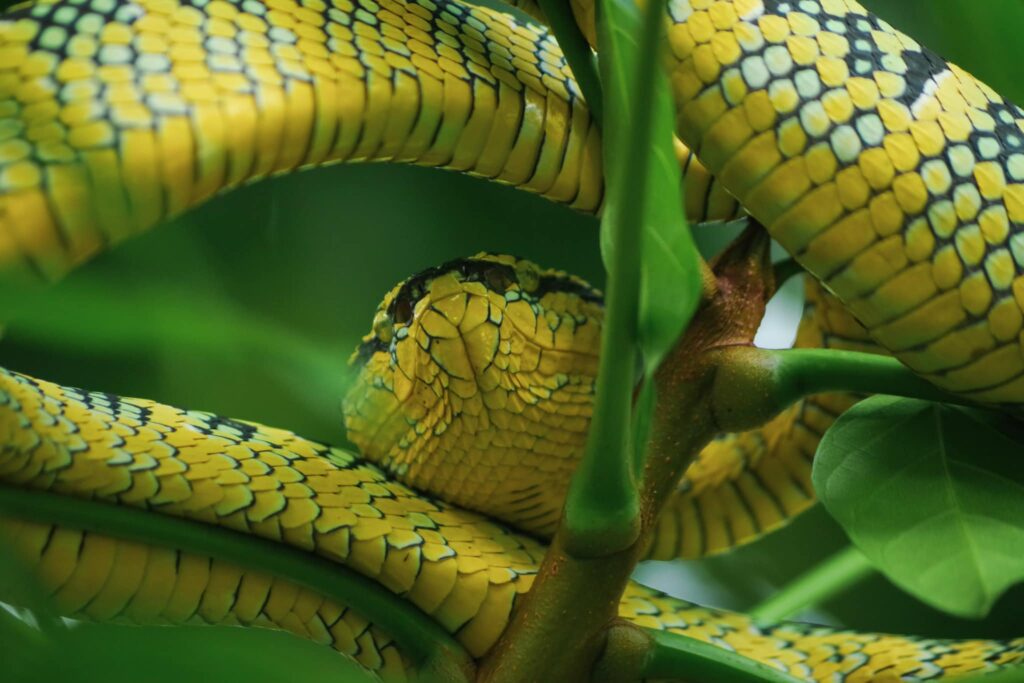
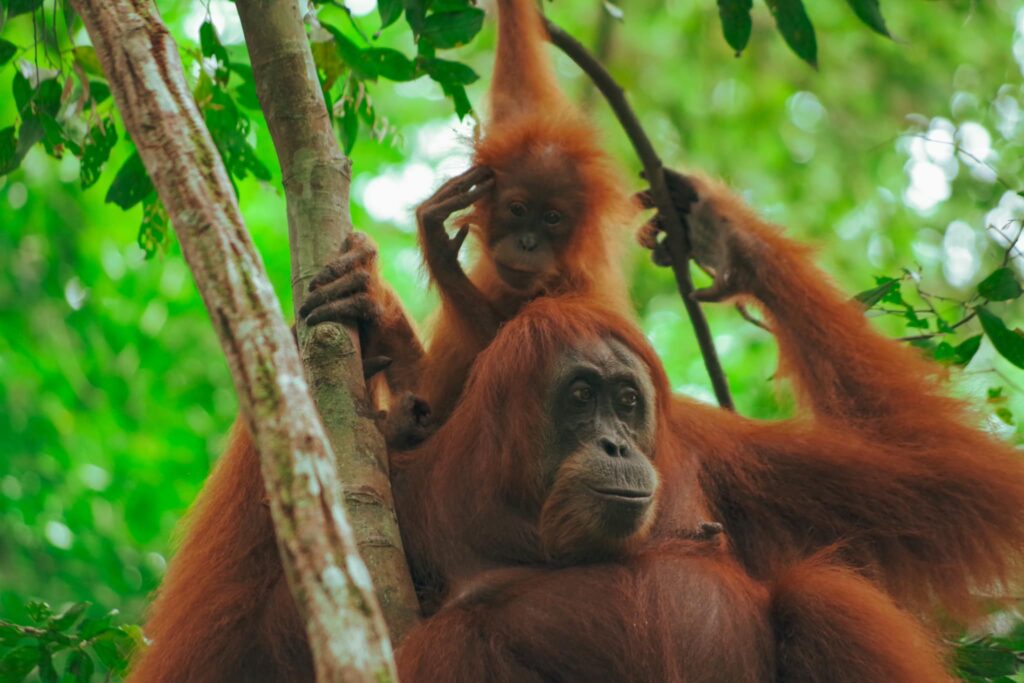
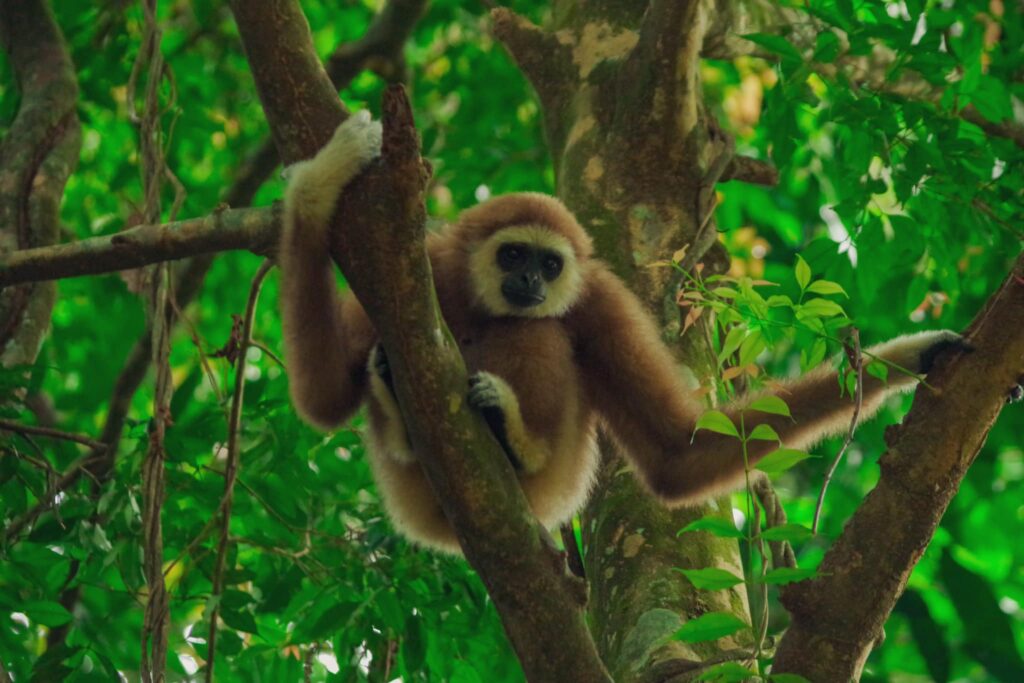
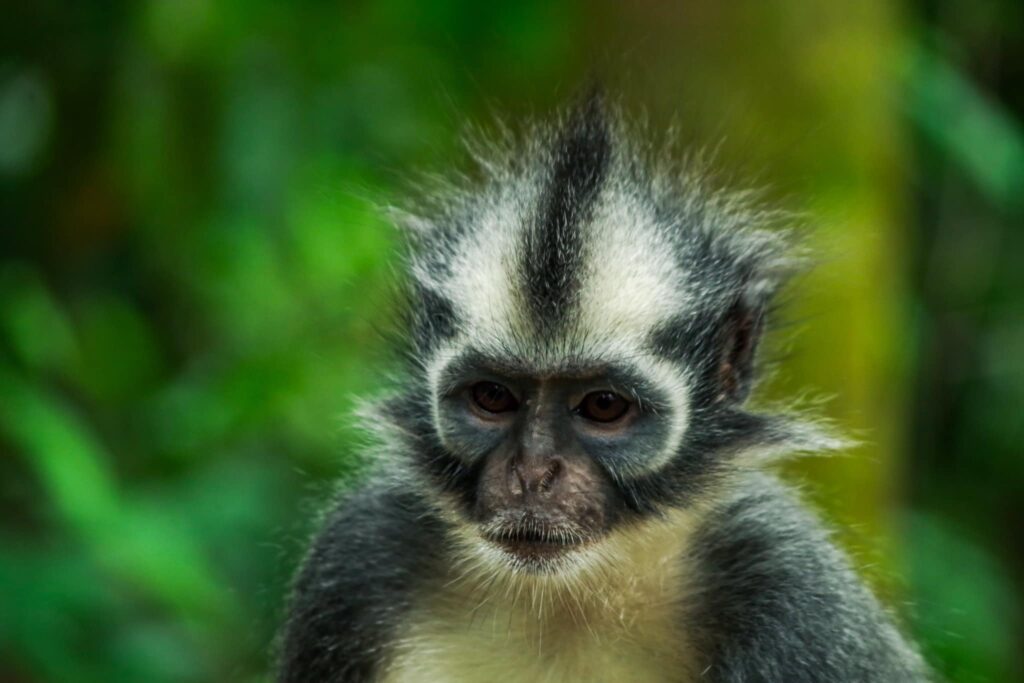
Safe Wildlife Exploration
When visiting Gunung Leuser National Park for wildlife viewing, prioritize safety and adhere to guidelines. Experienced guides provide expert insights into the park's diverse ecosystem.
Orangutans and Human Interaction
Human interaction poses health risks for orangutans due to their close genetic relation to humans, making them susceptible to diseases like measles, TB, pneumonia, influenza... Respect orangutans by maintaining at least 15-meter distance.
How to Behave
- Mind your surroundings and avoid littering.
- Maintain a calm atmosphere for natural orangutan observation.
- Use a quiet shutter and no flash for responsible photography. Don’t take selfies…
- If unwell, consider wearing a mask or simply postpone the visit to protect orangutans from potential illness transmission.
Trek Essentials
To move through the jungle of Sumatra you will need :
- trekking shoes, long pants, long sleeves, t-shirts, fresh underwear, rain gear
- a sleeping bag, mosquito repellent lotion, high protection sunscreen, a headlamp, a hat or cap, sunglasses, a bottle of water, flip flops and toilet paper!
- a waterproof bag to protect your camera and any other important documents and equipment you may wish to take with you (apart from protecting your camera, consider bringing extra batteries and memory cards)
- First aid such as painkillers, anti-diarrheal, disinfectant as well as any other medications you usually take.
Answers to most common questions
- Opt for lightweight, breathable clothing like cotton or linen, ideal for the tropical climate.
A lightweight, waterproof jacket or poncho for unexpected rain showers! Pack comfortable sandals and trekking shoes, essential for exploring nature reserves and navigating city walks. - Carry a compact daypack for essentials like reusable water bottle, high SPF sunscreen, sunglasses, hat, insect repellent, and camera during day trips.
- Include a basic first aid kit with items like pain relievers, antidiarrheal and any other medications you may need.
- Bring Indonesian Rupiah in cash for small purchases, as not all places may accept credit cards. ATMs are available, but it’s good to have some local currency on hand.
- We strongly advise securing travel insurance that covers medical emergencies, trip cancellations, and other unforeseen events. Keep your passport, visa (if required), travel insurance documents, and any necessary permits in a secure and easily accessible place.
Sumatra, located on the equator and cloaked in expansive rainforests, features a tropical climate with constant warmth and humidity.
The dry season typically spans from May to September, with intermittent rain, while the wetter period prevails between November and January.
November is identified as the wettest month in North Sumatra, it’s best to avoid it for those not inclined toward heavy rainfall!
Conversely, February is noted as the driest month…(Yes, it can be tricky sometimes!)
In North Sumatra, the warmest month is May, boasting an average maximum temperature of 33°C (91°F), while January marks the coldest month with an average maximum daytime temperature of 31°C (88°F).
June claims the title of sunniest month, but not necessarily the hottest! (yes, I know…)
To ensure a respectful and cultural experience, visitors to Sumatra are kindly urged to adhere to specific dress codes when interacting with local communities.
It is recommended for both men and women to wear trousers below knee length and T-shirts or shawls covering shoulders when visiting villages.
Avoiding shorts, sleeveless shirts, cleavage shirts, and skirts above the knee is encouraged.
In North Sumatra’s tropical climate, loose-fitting attire is not only culturally appropriate but greatly enhances comfort!
Moreover, during river trips in the jungle, visitors will (unless otherwise noted) be able to wear swimwear like bikinis or shorts, allowing for a more relaxed and enjoyable atmosphere.
These guidelines aim to create harmonious interaction between visitors and local communities, thereby promoting respect and mutual understanding.
Last but not least, (and this is my favorite advice so far!) learning Bahasa Indonesia basics, fosters genuine connections in Sumatra.
Greetings like “Selamat Pagi!” (good morning!), “Apa kabar?” (how are you?) or “Selamat Sore” (good evening) go beyond language, and that’s when magic happens!
Because such simple words signify respect for local culture, inviting smiles and meaningful conversations.
Remember, these phrases navigate markets, enhance cultural immersion, and help you interact with locals, so don’t hesitate!
What?
Still here after all that?
Well, perhaps a trip to Sumatra is calling your name!
While experienced travelers may see these tips as a simple reminder, for others, they might seem a tad daunting…
But hey!….remember, this could be the trip of a lifetime!
